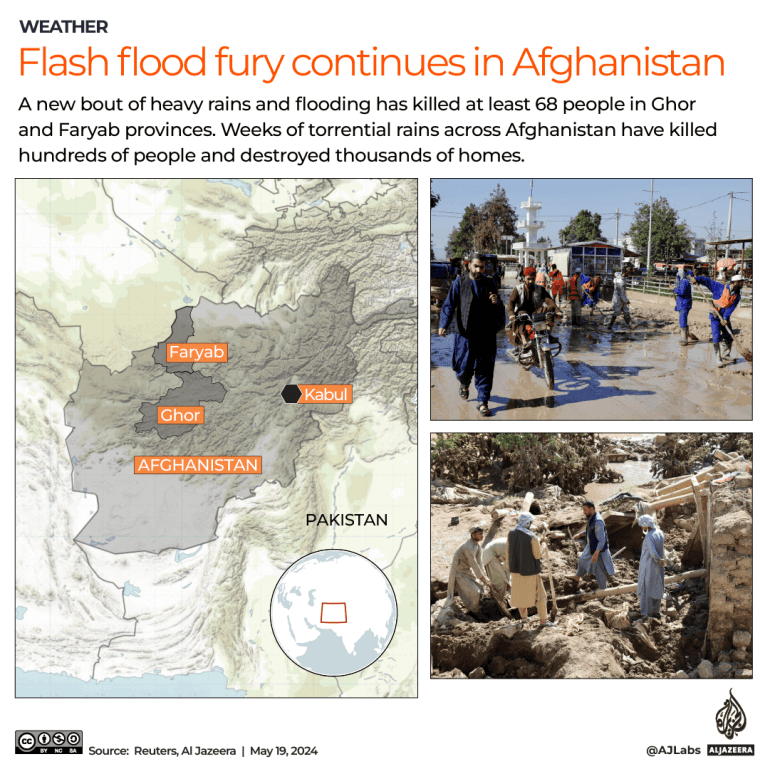Flooding damaged more than 1,500 houses, swamped more than 400 hectares of agricultural land and killed livestock.
Heavy floods in multiple districts of Faryab province on Saturday night “resulted in human and financial losses”, Asmatullah Moradi, spokesman for the Faryab governor, said in a statement on Sunday.
“Due to the floods 66 people were killed,” he said, adding that at least five people were injured and several others missing.
The flooding damaged more than 1,500 houses, swamped more than 400 hectares (1,000 acres) of agricultural land and killed livestock in their hundreds, he said.
Another 18 people had also died in floods in the same province on Friday, Moradi added.

The latest disaster in Faryab came just a day after provincial authorities said 50 people were killed in flash flooding just south of the province in Ghor.
According to the Kabul-based TOLONews, up to 80 percent of the city of Ferozkoh in Ghor was destroyed by the flooding.
Afghanistan is prone to natural disasters, and the United Nations considers it among the countries most vulnerable to climate change.
Just over a week ago, more than 300 people were killed in flash flooding in northern Baghlan province, according to the UN World Food Programme and Taliban officials.
The disasters are the latest to hit the impoverished country, which has seen above-average rainfall this spring.
Even before the latest spate of floods, about 100 people had been killed from mid-April to early May as a result of flooding in 10 of Afghanistan’s provinces, authorities said.
Farmland has been swamped drowning thousands of cattle in a country where 80 percent of the more than 40 million people depend on agriculture to survive.
The rains come after a prolonged drought in Afghanistan, which is one of the least prepared nations to tackle climate change impacts, according to experts.
Amid the disaster, Afghanistan is also facing a shortfall in aid after the Taliban took over as foreign forces withdrew in 2021. Development aid, which formed the backbone of government finances, was slashed.
The shortfall has worsened in subsequent years as foreign governments grapple with competing global crises and growing condemnation of the Taliban’s curbs on Afghan women.